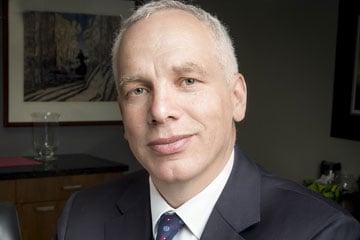
Some lawyers say changing the name of the Law Society of Upper Canada is just a distraction from the real work that needs to be done in order to address barriers to access to justice.

Some lawyers say changing the name of the Law Society of Upper Canada is just a distraction from the real work that needs to be done in order to address barriers to access to justice.
The law society’s governing body, Convocation, voted today to discard “Upper Canada” from the regulator’s name. Benchers will consider a new name in November.
Proponents of changing the law society’s name say it was an important step in a strategy to improve access to justice. But some lawyers say the debate around the topic singles out a cosmetic issue and ultimately distracts from harder conversations about how legal services are delivered.
“The choice of such a hot-button issue, which will attract a great deal of attention but won’t actually have I would think that much of an impact at the end of the day, risks being a distraction from the more important and pressing access-to-justice challenges that we as Ontario lawyers ought to be concerned about,” says Adam Goldenberg, a lawyer with McCarthy Tétrault LLP.
Goldenberg says changing the name would not preclude other changes, but he does not think it will have a broad sweeping impact that some have suggested. He adds that this conversation will polarize the profession while at the same time not “move the needle” dramatically.
LSUC Treasurer Paul Schabas convened the law society’s Strategic Communications Steering Group in February to look at how the law society can better connect with the public.
Julian Falconer, chairman of the steering group, says a name change in and of itself will not be a huge game changer, but it is an important first step.
“It is one piece of a larger strategy that we are studying and proposing to unfold over time in the short to mid term, not down the road. It’s a piece, but it’s an important piece,” he says.
“Names matter.”
Through its research, the steering group found that only seven per cent of Ontarians are familiar with the Law Society of Upper Canada.
The law society’s name dates back to 1797 when Upper Canada was a province of a British colony.
The law society held on to the name even when Upper Canada was no longer a political entity after 1841.
The debate at the September meeting was not the first time Convocation was considering a name change. In 1993, Convocation rejected a motion to change the law society’s name.
In 2012, a motion at the LSUC annual general meeting asking Convocation to consider a name change was voted down.
Proponents of the change have also said the “Upper Canada” label is confusing to Ontarians and that it does not define the geographic area it is responsible for anymore. They say changing the name would make it more consistent with those of law societies in other provinces and territories.
The “Upper Canada” name has also been described as archaic, colonial, outdated and a barrier to access to justice.
Proponents also say that the name points back to a period of colonial history when unfair treaties were struck with indigenous communities.
Schabas has been vocal in his support of changing the law society’s name.
“We need to make changes to reflect who we are today and not who we were 200 years ago,” he told Convocation.
Opponents of changing the name, however, say 200 years of history should not simply be cast aside and that the name should be celebrated and remembered. Some opponents also note that the law society had no part in negotiating the unfair treaties that were hashed out between indigenous peoples and the government of the time.
Others say changing the name would be a waste of time and money. The law society has set aside $150,000 in 2018 to implement the name change, as anything that has the old name on it, from signs to business cards, will need to be replaced.
Some benchers opposed the motion as they felt the province would give the false impression that the province has made significant progress in its reconciliation with indigenous peoples.
“The problem is not in the name but in inaction,” said Bencher Rocco Galati. Convocation was originally set to vote on whether to adopt the Law Society of Ontario as its new name, but an amendment was made so that the motion would discard “Upper Canada” and delay a vote on a new name until November. Some questioned whether “Ontario” is any less colonial than “Upper Canada.”
Ultimately, Convocation approved the amended motion to discard “Upper Canada” and to vote on a new name once the steering group gets more information on how the “Law Society of Ontario” would be received by the public.
The Law Society of Upper Canada will continue to be the regulator’s legal name until the provincial legislature amends the Law Society Act to make the change.
Read the full story Monday in Law Times. Follow reporter Alex Robinson's Twitter feed from the meeting.